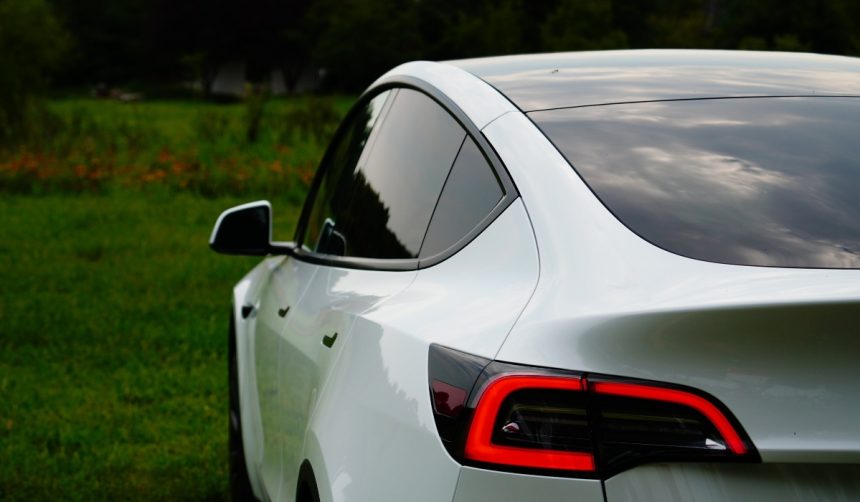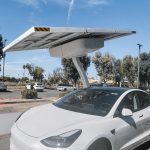Tesla’s $16.5 billion AI6 chip manufacturing agreement with Samsung marks a significant move for the electric vehicle manufacturer as it looks to diversify its semiconductor supply and deepen production capabilities within the United States. The deal centers around Samsung’s new Taylor, Texas facility, which is tasked with producing advanced AI6 chips intended for mass-market products like the Cybercab and Optimus robot. While the partnership brings potential logistical efficiencies and strategic autonomy, it also underscores Tesla’s ongoing efforts to reduce reliance on Taiwan Semiconductor Manufacturing Co. (TSMC) and ensure more control over future chip innovation. This move reflects a broader industry trend of seeking alternative supply chains amidst ongoing geopolitical uncertainties.
Past coverage of Tesla’s chip sourcing noted a firm dependence on TSMC for AI processor supply, while Samsung struggled to match TSMC’s technological leadership and yield rates. Initial reports suggested Tesla was content with TSMC’s provision of AI5 chips, but rising demand for next-generation features in Tesla products illustrated the need for added flexibility. Unlike earlier agreements that limited Tesla’s direct involvement in development, the current partnership grants the automaker valuable foundry experience and involvement in the actual chip manufacturing process. Previous Samsung collaborations tended to be less impactful, but the scale and scope of the AI6 arrangement may nudge the competitive landscape in the semiconductor industry.
What Benefits Does the Samsung Deal Offer Tesla?
The partnership provides Tesla with critical access to Samsung’s manufacturing expertise and advanced foundry located in Texas. The enhanced proximity is likely to streamline supply logistics while fortifying Tesla’s internal chip design prowess. Ming-Chi Kuo, an analyst from TF International Securities, commented,
“For Elon Musk and Tesla, this represents a valuable opportunity to gain real-world foundry experience at an exceptionally low cost — something TSMC would never allow.”
Tesla CEO Elon Musk has also highlighted the decision to take a hands-on approach with the Taylor facility, underscoring his commitment to keeping production timelines on track.
How Does Tesla Manage Risks in Advanced Chip Production?
Risks remain, particularly due to reported lower yields in Samsung’s 2nm SF2 process when compared to TSMC’s N2 node. Nevertheless, Kuo indicates that technological aspects shared between Samsung’s fabrication technologies could aid a smoother ramp to mass production. Should Samsung fall short, Tesla has structured the agreement to permit shifting manufacturing back to TSMC, with the potential added advantage of acquired manufacturing expertise through this trial. Kuo reinforced this sentiment, stating,
“If production falls short of expectations, the worst-case scenario for Tesla would be to shift the order back to TSMC and absorb the resulting delays to AI6. However, Tesla’s edge in real-world AI could significantly reduce the risk of AI6 delays.”
This contingency plan ensures Tesla is not exposed to long-term supply bottlenecks.
Could This Deal Affect the Foundry Industry’s Balance?
For Samsung, landing Tesla as a high-profile client could boost its foundry business profile and accelerate advancements in process technology. The partnership positions Samsung to compete more vigorously with TSMC, especially for high-volume, specialized chip production. Kuo emphasizes that even without matching TSMC’s yield performance, Samsung’s customer-involved business model presents opportunities for growth. Tesla, on the other hand, is poised to benefit from an improved chip supply chain, reduced costs, and augmented expertise, making chip manufacturing a new competitive differentiator for Elon Musk’s ventures.
Samsung’s engagement with Tesla raises questions about supplier dynamics and long-term reliability, given the technical challenges and economic stakes involved. Both parties are set to gain from risk-sharing structures and the chance to develop more collaborative models beyond typical manufacturer-client relationships. Readers considering the implications should note that while initial yield and technology hurdles exist, the arrangement could inspire similar industry collaborations in the future, promoting flexible supply chains and encouraging innovation through customer participation. Effective management of such partnerships could directly impact vehicle development timelines and technology cycles, important considerations for companies navigating rapidly evolving hardware requirements. Understanding the intricate balance between supply risk, in-house expertise, and external collaborations may become a critical factor for automakers and tech firms alike as demand for specialized processors grows.
- Tesla selected Samsung’s Texas foundry for AI6 chip manufacturing.
- The agreement reduces Tesla’s reliance on TSMC for advanced chips.
- The partnership invites industry shifts and supply chain diversification.










